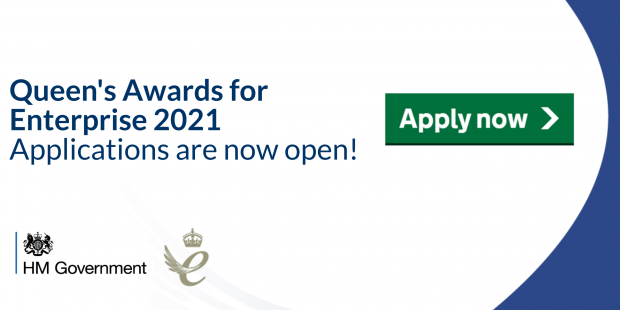The Queen’s Awards are the most prestigious awards for business, celebrating the outstanding achievements of organisations across the UK and today (20 July) marks the launch of the refocused Promoting Opportunity (through social mobility) category.
The updated category recognises organisations that have supported people from socially disadvantaged backgrounds in improving their job skills and their chances of finding work. It has been refocused this year to gives applicants a better understanding of the application process, enabling those whose organisations’ core aim is to provide opportunities for others, and also those with a social mobility intervention or programme, to be celebrated.
The application form has also been refreshed to make it easier for organisations to provide evidence on the impacts and benefits of their interventions – it branches out into two separate sections after the initial eligibility questions, allowing organisations whose core aim is social mobility to answer questions specifically for them and those who instead have a specific programme or initiative to answer questions tailored for them.
We here at the Queen’s Awards for Enterprise are often asked who is eligible to apply for this Award. Do take a look at the eligibility criteria here https://www.gov.uk/queens-awards-for-enterprise/eligibility and if you are an organisation that supports socially disadvantaged individuals from the list below, you may be eligible to apply :
- People from Black, Asian and minority ethnic (BAME) backgrounds, including Gypsy and Traveller people.
- Asylum seekers and refugees or children of refugees.
- Young people (over 16 years old) with English as a second language.
- Long-term unemployed or people who grew up in work-less households.
- People on low incomes.
- Lone parents - single adult heads of a household who are responsible for at least one dependent child, who normally lives with them.
- People who received free school meals or if there are children in the person’s current household who receive free school meals.
- Homeless and insecurely housed, including those at risk of becoming homeless and those in overcrowded or substandard housing.
- Care leavers - people who spent time in care before the age of 18. Such care could be in foster care, children's homes, or other arrangements outside the immediate or extended family.
- Young people (over 16 years old) who are not in education, employment or training (NEET) or are at risk of that.
- People who attended schools with lower than average attainment or if there are children in the person’s current household who attend school with lower than average attainment.
- People whose parents’ or guardians’ highest level of qualifications by the time the person was 18 was secondary school.
- People with a physical or mental disability that has a substantial and adverse long term effect on a person’s ability to do normal daily activities.
- People recovering or who have recovered from addiction.
- Survivors of domestic violence.
- Military veterans.
- Ex-offenders.
- Families of prisoners.
Below are some examples of organisations who could submit an application.
It may be that you are a high street business that has created a social mobility programme to recruit and train ex-offenders, providing a job and a new start. Your business may work directly with ex-offenders, providing them with work experience and work-based training which leads to a permanent role at the end of the programme.
You could be a social enterprise company working with young people aged 16-24 from ethnically diverse communities that works closely with community organisation and recruits staff from the BAME community, partnering with local employers to create 'real' opportunities to access work placements. You create a pathway for young people, developing their skills, connecting with employers and accessing meaningful work experience.
You may be a charity that exists to help survivors of domestic abuse to enter employment by providing job related training and individual mentoring schemes , interview skill workshops, work placements and a fund to enable participants to buy interview clothes.
Applications are free to enter, it is a self-nominating process and close on 09 September 2020. Visit our website to apply now.
We look forward to receiving your application.
Subscribe to updates from this blog, or follow us on Twitter and LinkedIn.


Leave a comment